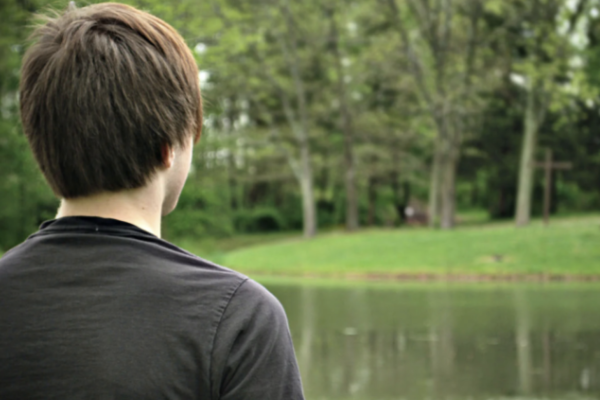PROACTIVE PARENTING
WITH YOUNGER KIDS
You want to help your kids be happy and healthy and to be the best parent you can be. You can, one step at a time.
This Online Toolkit will equip you to be proactive in your parenting to help your kids lead a happier life, prevent problems and issues all kids face, and equip them to thrive in a healthy manner emotionally, mentally, socially, spiritually, and personally.
Below are lessons organized according to the PACES for Parents methodology with sections about Preparation, Awareness, Connection, Education, and Steps. Each lesson will offer practical techniques you can select from to fit your family situation.
Enjoy the journey!
Getting started
It’s time to take the next steps in helping your kids live happy, healthy lives. This Online Toolkit can be used these ways:
- Scan the toolkit and go directly to a lesson.
- Bookmark this page for ongoing use.
- Go through the lessons in order.
You’ll get the most from the material if you go through the lessons in order and use all the features included in this Online Toolkit.
Open a document or get paper or a journal to take notes as you go through the material. Then take the quick assessment below to clarify the benefits of these useful techniques for your family.
In each lesson, you will see a 1-minute overview video and a podcast version of the material. You can also click on the article to read the same content that’s in the podcast or forward that article to a friend. Then click to see Key Points to Consider for a summary of highlights.
When done, use the Create a Plan section at the end of the toolkit to prioritize the steps you want to take to best benefit your family.
quick Assessment
Use this assessment to see how this Online Toolkit can help your family:
1. From 1-to-10 (10 is High), how important is it for your kids to be happy, emotionally and mentally healthy, connected to family and God, protected from harm, and thriving as they grow up?
2. From 1-to-10, how helpful is it for parents to be proactive (intentional, thoughtful, balanced) versus reacting emotionally, being too busy, or unknowingly encouraging negative behaviors?
3. How would it feel to know you don’t have to be a perfect parent and you can prevent things that harm your kids, worry less and enjoy life more, and take simple steps to be a great parent?
4. Which are important for happy and healthy kids: investing time, goals and boundaries, a good relationship, being a positive example, promoting good activities, and teaching them?
5. Are you willing to use this Online Toolkit to be prepared as a parent, aware of what’s going on, connected to your kids, educated on what to do, and confident in the right steps to take?
Preparation
Be proactive & let go of perfection
Lesson 1.
Do You Practice Proactive Parenting?
How can my kids thrive mentally, emotionally, spiritually, socially, and personally?
What are under-parenting and over-parenting and why does it matter so much?
Proactive parenting is when we are intentional about doing the right things to encourage positive outcomes in our kids’ lives rather than waiting until there is a problem to react. By being thoughtful and balanced, we help our kids become happy, healthy, and safe.
We can focus our proactive parenting in a few key areas to help our children pursue mental excellence, emotional well-being, and spiritual growth. This toolkit addresses those areas while encouraging them toward social connection and personal progress as well.
Good parenting involves balance and understanding the negative extremes of parenting can help us hit the target rather than:
– Under-parenting: When we do too little by being reactionary or distracted.
– Over-parenting: When we do too much by being controlling or overprotective.
Parenting is too important to do anything but our best and focusing on proactive parenting helps us be the best parents we can be.

Lesson 2.
What kind of parent are you?
How can I let go of the burden of feeling like I need to be a perfect parent?
How do I lessen mistakes of harmful or reactive parenting and be more proactive?
None of us are perfect parents, but our kids don’t need us to be. We can let go of debilitating shame we may carry because we are less-than-perfect. With that understanding, we can calmly examine our parenting and take positive steps to be the best we can be.
It’s helpful to identify the reasons we want to be a great parent which can include: protecting children from harm, ensuring their happiness, fostering family well-being, personal fulfillment, and fulfilling our responsibility as a parent.
There are different types of parents, including harmful parents who unintentionally lessen their children’s well-being, reactive parents who respond impulsively to situations, and proactive parents who are intentional and thoughtful in their approach.
None of us can be a perfect parent because perfection is unattainable but recognizing and learning from mistakes can lead to growth.
Ultimately, parents should aim to be proactive as much as possible, learning from past experiences and being mindful of their decisions while involving God in their parenting journey. The entire family will benefit as we take positive steps one day at a time.

Lesson 3.
What kind of parent are you? (Part 2)
What are examples of harmful and reactive things parents do that affect their kids?
What is “PACES for Parents” and how can it help me be proactive and effective?
STEPS Proactive Parenting will help us raise healthy and happy children. By seeing stories of different kinds of parents, such as Helen and Harry as Harmful Parents and Rachel and Robert as Reactive Parents, we can learn what not-to-do.
By hearing about positive examples such as Paula and Patrick as Proactive Parents, we can see the benefits of using the PACES for Parents process (the word P-A-C-E-S is an acronym) to be the best moms and dads we can be:
- Preparation – Help you be more proactive in equipping your kids for the life stages they will go through.
- Awareness – Be aware of what’s really going on with your kids and balanced in your approach with them.
- Connection – Develop good communication with your sons and daughters by being relational and empathetic.
- Education – Learn what to expect with your kids and how to help them prevent problems with thoughtful choices.
- Steps – Build a plan for your family with simple, intentional steps you can take to equip your kids to thrive in real life.
We should all think about: “What kind of parent do I choose to be?” As a proactive parent, you will find more peace to help you sleep better at night. You’ll feel good because you will know you are doing your best at one of the most important roles of your life.

Awareness
Be balanced & teach your kids wisely
Lesson 4.
Who Is Teaching Your Kids?
What are the ways my children are learning about life and why is that so important?
What are they being taught by these influences that affect who they will be?
In today’s world, your children are being exposed to an ever-increasing and sometimes dangerous array of influences, and a critical question becomes: “Who is teaching your kids?” Answers include:
– The internet, social media, and cell phones are teaching your kids, but what are they learning there?
– Television is teaching your kids, and they learn relatively little that is helpful and some that is harmful.
– Schools are teaching your kids, sometimes espousing principles that may be totally contrary to yours.
– Friends are teaching your kids directly and through powerful peer pressure, and your kids are listening.
Your kids are being taught there are no absolute moral or spiritual principles and everything is relative. In today’s world, life is mostly about one thing: yourself. Where are they learning about faith and courage, humility to face our wrongs, and God’s love and grace?
It’s more important than ever for parents to increase their awareness. Do you know who is teaching your kids? Are you?

Connection
be relational & invest your time in them
Lesson 5.
What every kid needs to learn from their parents
What are the top few most important things I need to say to and teach my kids?
How can I help my kids improve their relationships and their lives at the same time?
Teaching our kids about social connection helps them build relationships, and they’ll be happier and more successful as well. They can enjoy being a kid and grow up to be healthy emotionally, mentally, spiritually, and personally as well as socially.
Building connection is not only about how your kids interact with others. It is built on their relationship with God and how they feel about themselves. With that foundation, you can help them form positive relationships by teaching them and modeling the way:
– Parents help children form a relationship with God by teaching them God loves them and they have value and a positive future.
– Encouraging children to be comfortable with themselves involves expressing love, normalizing struggles, and ensuring support.
– Modeling healthy relationships and good communication is crucial for parents to teach their children connection and empathy.
– Parents should teach children about life boundaries, emotional intelligence, and decision-making to equip them for effective living.
– Teaching children how to connect with others involves modeling kindness, teaching communication skills, and nurturing empathy.

EDUCATION
Be thoughtful & equip them for real life
Lesson 6.
How Kids Achieve Excellence
How do kids learn how they can develop personal and mental excellence?
What are 3 key habits I can help my kids form so they achieve excellence?
To achieve personal and mental excellence, kids must acquire knowledge and experience to become competent at what they do. This will give them confidence to be the best they can be and fulfill their God-given potential in life.
There are 3 key habits parents can help their kids develop that will help them move toward excellence and confidence:
1. Be a Doer – Help them be involved in life rather than being only an observer. Let them experience that practice and improvement lead to competence. Show them that working hard is part of a healthy and happy life and that doing their best is key to excellence.
2. Be a Learner – Make learning enjoyable to them starting at an early age. Help them understand the importance of being teachable and to see that learning to learn is a critical life skill. Knowledge and experience lead to competence which helps them build confidence.
3. Be a Planner – Talk to them about being intentional with their choices. Help them spend time each day on things they choose and things that matter. If your kids set goals and take small steps toward them, they can eventually achieve excellence.

Lesson 7.
How to Enhance Your Kids'
Emotional Well-Being
What are 10 positive behaviors that will increase my kids’ emotional well-being?
What are practical things I can do to enhance my kids’ mental health and prevent issues?
All parents want their children to be happy, healthy, and safe. But unfortunately, emotional problems happen in virtually every family. There are things you can do to protect your kids from those issues so they find well-being instead.
Some negative behavior traits influence people toward harmful issues. You can protect your kids against these problems by helping them develop positive behaviors. These behaviors will increase their resilience and enhance their serenity and emotional well-being.
There are 10 positive behaviors parents need to understand so they can choose which to focus on with their kids. Examples include:
– Being thankful rather than entitled
– Enjoying life more by worrying less
– Developing a healthy self-awareness
– Making good choices versus impulsivity
– Connecting with others to avoid isolation
If your kids are already moving down the path toward harmful emotional issues, reach out to others for assistance and support.

Lesson 8. Your Kids and Spirituality
What are 5 STEPS I can use to help my kids develop spiritually and personally?
What are some simple concepts for guiding my kids’ spiritual growth as they get older?
Your kids develop their initial understanding of God from you. Through what you teach, and the example you set for them.
To build a good plan for helping your kids develop spiritual growth, there are five key principles worth considering:
– Surrender our will to God and make good choices.
– Seek transformation by humbly admitting our mistakes.
– Treat other people with empathy and forgiveness.
– Make daily progress through prayer and positive habits.
– Continually look to be of service to other people.
What do your kids see when they look at you as a spiritual example? Kids are at different levels in their spiritual development, so you can’t deal with them exactly the same. But you can guide them as they build their faith and a personal relationship with God.

Steps
Be intentional & plan what to focus on
Lesson 9. Parenting With Grace and Truth
We hear about “grace” all the time, but what does it have to do with parenting?
How do grace and truth help me achieve the right balance in my parenting?
Grace is free and unmerited favor as we are loved—and as we love others—even when nothing has been done to deserve it. We should focus on loving our kids all the time, no matter what they do, while also teaching them about right and wrong.
Parenting with grace begins when we recognize the unearned blessing God bestows on us and show grace to ourselves by accepting that gift. When we recognize we are not perfect, but God shows us grace anyway. Which sets the example for how we treat our kids.
Grace helps parents be patient and forgiving even when we don’t feel like it and to parent our kids the same way that God parents us.
Proactive parenting helps us adopt a view of grace that does not replace the truth but complements it. For example:
– Truth understands people have negative feelings and grace bandages and heals them.
– Truth includes boundaries or consequences and grace gives us courage to enforce them.
Proactive parenting helps us adopt a balanced view of grace and truth. This helps us take a thoughtful approach toward being GREAT parents who integrate goals and boundaries, relationships, example, activities, and teaching into their ongoing parenting style.

Lesson 10.
How to Be a Great Parent
What are 5 areas I should focus on that will help me become a GREAT parent?
What are practical steps I can take in each of those areas to raise my kids well?
As you move along the parenting journey, there are fundamental principles that will help you take steps toward being a GREAT parent. They will help you build a good relationship and character with your kids that will protect them and help increase their well-being.
You can use the word G-R-E-A-T as an acronym to help you integrate these 5 key areas in your parenting:
- G – Goals and boundaries: Set boundaries and consequences before they are needed.
- R – Relationship: Commit the time to be with your kids, sacrificing some other activities.
- E – Example: Understand that your kids are watching and copying everything that you do.
- A – Activities: Let them do positive activities they like, are good at, and get satisfaction from.
- T – Teaching: Help your kids develop positive character traits and put them into practice.
Let your kids see God in how you live. Demonstrate he is the most important thing in your life. Emulate how God parents us with love, forgiveness, and support. Know when you set good boundaries and enforce them in love, you help your kids find their way in the world.

Lesson 11:
Putting Proactive Parenting into Practice
How do all of the aspects of Proactive Parenting fit together to help my family?
How do principles of GREAT parenting help me build a plan and be intentional?
Every parent wants to raise their kids to be healthy, happy, and safe. Build many parents are so busy, it leads to an important question: Do they practice proactive parenting? To do your best, it helps to build a plan and be intentional in the areas of being a GREAT parent:
– Goals and Boundaries: Capture objectives for being the best parent you can be.
– Relationship: Make commitments concerning your relationship with them.
– Example: Become intentional about setting a positive example for them.
– Activities: Encourage them to get involved in good activities they choose.
– Teaching: Ensure you are being proactive in how you teach your kids.
People become great parents by being intentional each day which includes managing their time and making good choices on the areas to focus on with their kids. Day-to-day, those five focus areas of a G-R-E-A-T parent can remind you of next right steps to consider.
Use the “Create a Plan” section of this Online Toolkit to capture those things you feel you should do in the coming months to help your kids grow into the people they are meant to be and enhance their lives socially, mentally, emotionally, spiritually, and personally.

Create a Plan
Use the 10 questions below to help you clarify key actions using this Online Toolkit:
Preparation – Why Proactive Parenting is important for happy and healthy kids
1. Is your style “under-parenting” or “over-parenting” and what should you adjust?
2. How can you be more proactive, intentional, thoughtful, balanced, and engaged?
Awareness – Why it’s critical for parents to embrace their role teaching their kids
3. What sources now teach your kids and what more should you do to teach them?
Connection – What you can do to help kids improve their relationships and lives
4. What are the top few most critical things you need to say and teach to your kids?
5. Which examples of 5 ways to help your kids create social connection will you use?
Education – What you can do to help them mentally, emotionally, and spiritually
6. How can your kids move toward excellence by being a doer, learner, and planner?
7. Which of the 10 positive emotional behaviors will you emphasize with your kids?
8. To guide their spiritual growth, which of the 5 STEPS will you focus on for them?
Steps – How to be a GREAT parent by building a plan and being more intentional
9. Which of the 5 areas of a GREAT parent will you use so they’re healthy and happy?
10. What are the top few things you will do in those areas using the examples given?